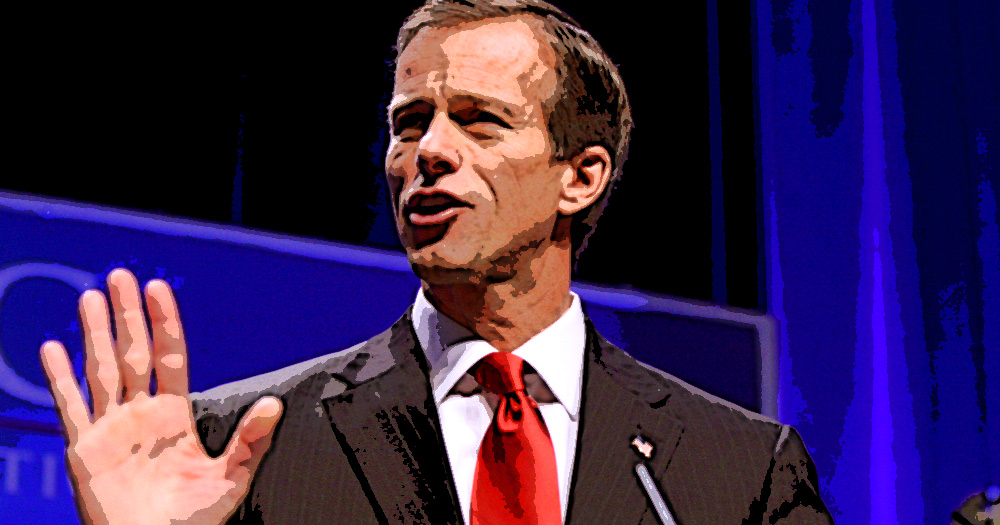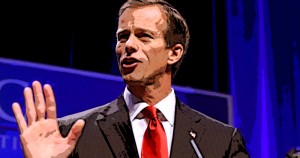We know that the media in general, and Silicon Valley, too, have strong anti-conservative biases — even if, in another sense, the Fourth Estate serves as almost the embodiment of one understanding of the conservative impulse: relentlessly upholding established institutions, against all attacks. The American media strongly defends the modern state; every program, it seems, is sacrosanct: the only thing wrong with Big, Intrusive Government is that it is not as Big and Intrusive as it should be.
This week, several ex-Facebook news curators alleged systemic “political bias” in how stories receive the top spot in Facebook’s Trending news section. So Sen. John Thune (R-S.D.) intrudes. He wrote to Facebook CEO Mark Zuckerberg, in his official capacity on the U.S. Senate Committee on Commerce, Science and Communication. Thune says that if Facebook is, in effect, promoting stories by means of a hidden political agenda, this amounts to something like a public fraud, which lies within this committee’s purview.
I don’t see how. And I really would like such biases and pseudo-frauds to be dealt with by consumer pressure rather than government whip. And that should be without regard to the partisan stripe of the bias — or the whip.
Anthony L. Fisher, over at Reason, notes that the senator has a logic problem: he rests his case for government oversight of Facebook rules and consumer relations on the infamous “fairness doctrine,” which is not operative at this time, and which Thune has previously and repeatedly opposed.
And for good reason: the doctrine produced government-enforced muting of speech, not fairness.
But this all may mean almost nothing. I’d never even noticed Facebook’s Trending section.
Have you?
This is Common Sense. I’m Paul Jacob.
Photo of Sen. John Thune credit: Gage Skidmore on Flickr

